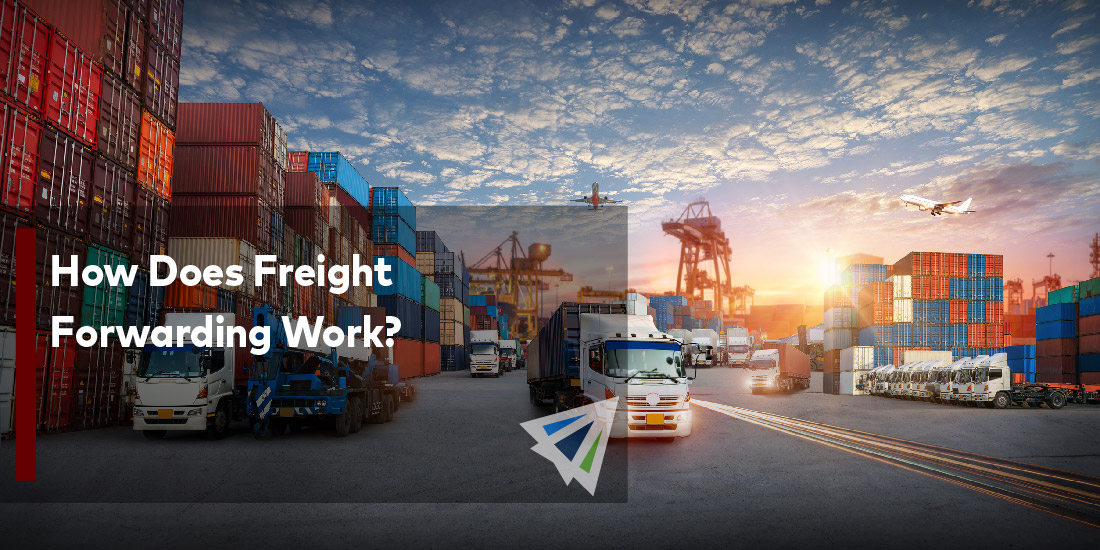Transporting commodities across international boundaries is a difficult task in the field of international trade. While some companies decide to handle shipping operations in-house, a large number of them choose to hire freight forwarders to take care of this part on their own. This choice frequently comes down to a company’s desire to dive into the complex world of logistics or stick to its core business.
Shipments, both local and foreign, are growing in bulk as the world economy continues to grow. The value of yearly exports hit an astounding $19 trillion (USD) in 2019 alone. When faced with such rapid expansion, businesses have to carefully weigh whether to hire more staff and invest in their own logistical infrastructure, or whether to outsource these responsibilities to knowledgeable outside operators.
Necessity of Freight Forwarders
The unsung heroes of global trade are freight forwarders. These specialists are excellent in maximizing the least expensive way to move items from one location to another. In addition to arranging inland transport, freight forwarders also manage port and customs documentation, coordinate shipping on ocean vessels, and assist with additional activities as required. Freight forwarders operate as middlemen between shippers and distribution points, such as destination ports.
Working with freight forwarders has several benefits, one of which is their capacity to leverage their connections with service providers and government organizations to guarantee seamless operations and obtain affordable prices and timetables. Experienced freight forwarders contribute a multitude of skills to the table, facilitating the effective planning, coordinating, and transportation of cargo to its final destination.
Organizing cargo shipment and handling export documents are the two primary duties that comprise a freight forwarder’s job description. Although freight forwarders and non-vessel operating common carriers (NVOCCs) are similar, there are certain differences, like the Bills of Lading, that need to be considered.
Freight forwarders might not own fleets of vehicles or warehousing space, in contrast to certain logistics companies. Rather, they frequently lease or hire these assets from other service providers, functioning, in the context of logistics, as second-party logistics providers (2PLs).
It’s important to investigate the range of first-party (1PL), third-party (3PL), fourth-party (4PL), and even fifth-party (5PL) logistics companies while discussing logistics providers. Although 1PL refers to companies handling their own shipping and transportation plans, 3PLs, 4PLs, and 5PLs provide progressively more advanced services, such as inventory control and technology solutions.
Benefits of Working with Freight Forwarders
What specific contributions do freight forwarders make, then? To begin with, their expertise in export laws and customs procedures is essential for maneuvering through the intricacies of global commerce. Freight forwarders need to stay up to date with technical improvements in order to allow flawless transactions and documentation processes in an era where Electronic Data Interchange (EDI) systems rule.
A wide range of services are included in the freight forwarding process, such as negotiating freight costs, reserving cargo space, setting up insurance, organizing labor and transportation, managing customs paperwork, and communicating with relevant government authorities as needed. A number of documents, including business invoices, packing lists, export shipping bills, and bills of lading, are necessary to enable efficient cargo transportation, and export paperwork is crucial in this regard.
Conclusion
To sum up, the complexity of freight forwarding emphasizes how essential it is to the world of international trade. Businesses can simplify operations, reduce risks, and concentrate resources on key activities by assigning these responsibilities to seasoned specialists. This will ultimately lead to growth and success in an increasingly linked world.
Should you have any questions regarding this and how it could impact your shipments, please reach out to our team today.
Additionally, we have our weekly market updates that can provide you with relevant freight news, updates, developments across the industry, and more.
